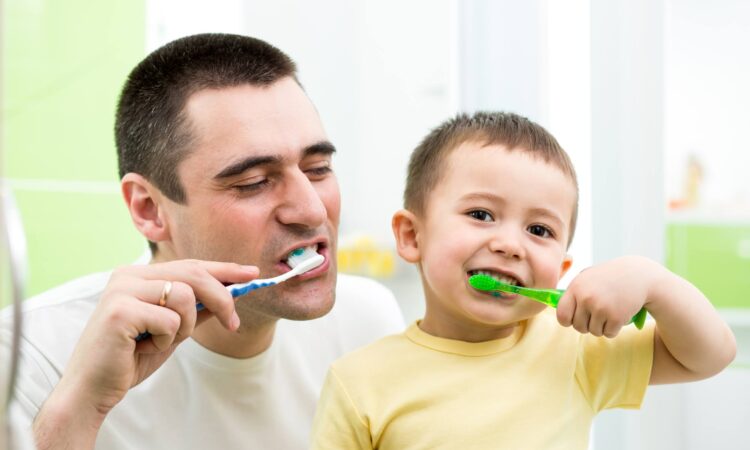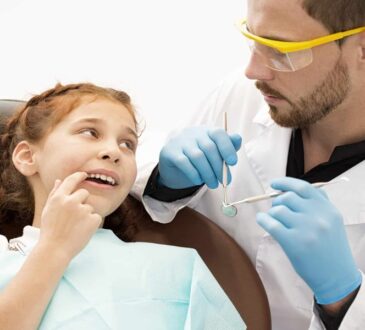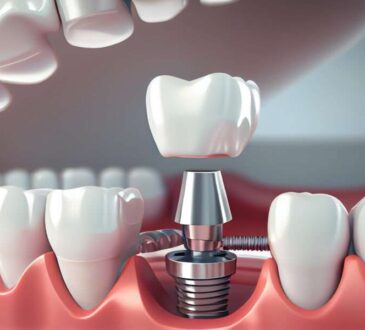
Encouraging good oral hygiene in children is crucial. You help set the stage for lifelong health by fostering these habits early. Simple actions like brushing and flossing become second nature with your guidance. A consistent routine not only prevents future dental issues but also boosts confidence and well-being. Start by making dental care fun and engaging. Try using storybooks or songs to explain why teeth need attention. Visit a dentist regularly. A dentist in Salt Lake City can provide expert advice and reinforce the importance of oral health. Lead by example. Show your child how you care for your own teeth. Involve them in choosing a toothbrush or toothpaste. Celebrate small successes to keep them motivated. By nurturing these habits, you safeguard their future and empower them with skills they will carry throughout their lives. Remember, your influence shapes their understanding and appreciation for a healthy mouth.
Start Early with Fun Tools
Your child’s introduction to oral care should be positive. Use colorful toothbrushes and tasty toothpaste to make brushing enjoyable. Consider letting your child pick their tools, so they feel involved. Electric toothbrushes with timers can be entertaining and effective. It helps them brush for the recommended two minutes.
Importance of Routine
Building a routine is essential. Encourage brushing twice a day, ideally after breakfast and before bed. Consistency is key. Set specific times for this routine to make it a habit, and stick to it even when traveling.
Brushing Techniques
Teach correct brushing techniques. Show your child how to angle the brush toward the gum line and use gentle circular motions. This helps protect their gums and clean their teeth effectively.
Flossing Matters
Flossing is often overlooked. Once your child’s teeth start touching, it’s time to introduce flossing. Use floss picks if traditional floss is challenging. Explain how flossing removes food bits and prevents cavities.
Nutrition and Oral Health
What your child eats affects their teeth. Limit sugary snacks and drinks. Encourage fruits, vegetables, and cheese, which can strengthen teeth. Teach them to rinse their mouth with water after meals if brushing isn’t possible.
Regular Dental Visits
Regular visits to the dentist are crucial. These visits ensure your child’s teeth are developing properly and identify issues early. The CDC recommends starting dental visits by the first birthday.
Monitor Progress and Celebrate Success
Track your child’s progress. Use a sticker chart to reward consistent brushing and flossing. Celebrate milestones like a cavity-free checkup. Positive reinforcement builds confidence and motivation.
Facing Challenges
Sometimes, children resist brushing. Stay calm and patient. Use gentle reminders rather than force. Turn brushing time into a game or challenge to make it less of a chore.
Using Educational Resources
Leverage educational resources like videos and apps designed to teach children about oral health. These tools can make learning about dental care fun and accessible. Organizations like the American Dental Association offer resources for parents and children.
Comparing Toothbrush Types
| Type | Benefits | Considerations |
|---|---|---|
| Manual | Affordable, easy to use | Requires proper technique |
| Electric | Effective cleaning, fun for children | Higher cost |
| Bamboo | Eco-friendly | May need more frequent replacement |
Impact of Oral Health on Overall Health
Good oral hygiene contributes to overall health. It reduces the risk of diseases linked to poor oral care, such as heart disease and diabetes. Teaching children the importance of oral hygiene supports their health in more ways than one.
Wrapping Up
Your role in establishing your child’s oral hygiene habits is invaluable. You provide the foundation they need to maintain a healthy smile throughout their life. Start early and stay consistent. Use fun and engaging methods to keep them interested. Celebrate their progress and continue to emphasize the importance of good oral care. With your support, they will grow into adults with strong, healthy teeth and a solid understanding of personal health responsibilities. Empower them with the tools and knowledge to maintain their well-being.




